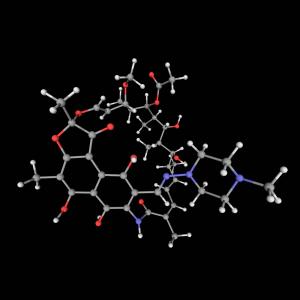$6.5 Million, Five-Year Initiative Focuses on Functional Immunology & Other Microbial Characteristics
Staphylococcus aureus (Sa) and methicillin-resistant staph aureus (MRSA) continue to be among the most common pathogens that overwhelm the immune system, causing serious skin, soft tissue and life-threatening blood-borne infections. Researchers at NYU Langone Medical Center will lead a consortium of five institutions on a $6.5 million contract from the National Institutes of Health directed at discovery of the fundamental immunology, microbial genetics, protein structure and proteomics of staphylococcus aureus.
This innovative research program represents a novel, integrated scientific approach designed through the collaborative efforts of biomedical scientists with convergent cross-disciplinary perspectives.
Between 1999 and 2005, the rate of MRSA-related hospital discharges has doubled, from 3.9 to 8.0 per 1000 hospitalizations in the U.S., with more than an estimated 10,000 fatal infections each year, according to the most recent Federal health statistics. The development of multiple antibiotic resistance has made treating this pathogen increasingly challenging.
“The overarching goal of our work is the identification of all of the Sa antigens that are fundamental to effective immune defenses,” said Gregg Silverman, MD, Professor of Medicine and Pathology at NYU Langone, and leader of the National Institute of Allergy and Infectious Diseases five-year contract. “Our research group at NYU will use an advanced and comprehensive experimental strategy that combines proteomic and genetic approaches for candidate antigen discovery.”
Dr. Silverman heads NYU Langone’s Laboratory of B-Cell Immunology, and has pioneered investigations of the immunobiology and host interactions with the staphylococcal toxin, Staphylococcal protein A (SpA).
Three additional NYU Langone laboratory research groups will work on the contract. These include the Laboratory for Staph Pathogenesis, headed by Victor Torres, PhD, Associate Professor of Microbiology; the Proteomics Core Lab, headed by Beatrix Ueberheide, D.Phil, Assistant Professor of Microbiology and Molecular Pharmacology; and the Clinical and Bacteriology Core Laboratory, headed by Bo Shopsin, MD, PhD, Assistant Professor, Departments of Medicine and Microbiology.
“We are grateful to the National Institute of Allergy and Infectious Diseases [part of the National Institutes of Health] for its generous support of this work,” Dr. Silverman said. “We hope that with a better understanding of the mechanisms underlying Staph aureus, we may move closer to developing an effective vaccine or immune therapeutic against this pathogen.”
Three other clinical institutions are participating in this endeavor: the Hospital for Special Surgery, Bellevue Hospital Center, and Vanderbilt University, while University of California-San Diego is supporting certain specialized computational analyses.
Dr. Silverman has been studying the relationship between Staph and the human immune system since the late 1980’s and has been the recipient of multiple grants and awards from NIAID-NIH over the past 27 years. In addition, his colleagues Drs. Torres and Shopsin are renowned investigators with expertise in Staph biology and clinical infections, and have also received past awards from NIAID.
Media Inquiries
Jim Mandler
Phone: 212-404-3525
Jim.Mandler@nyumc.org

